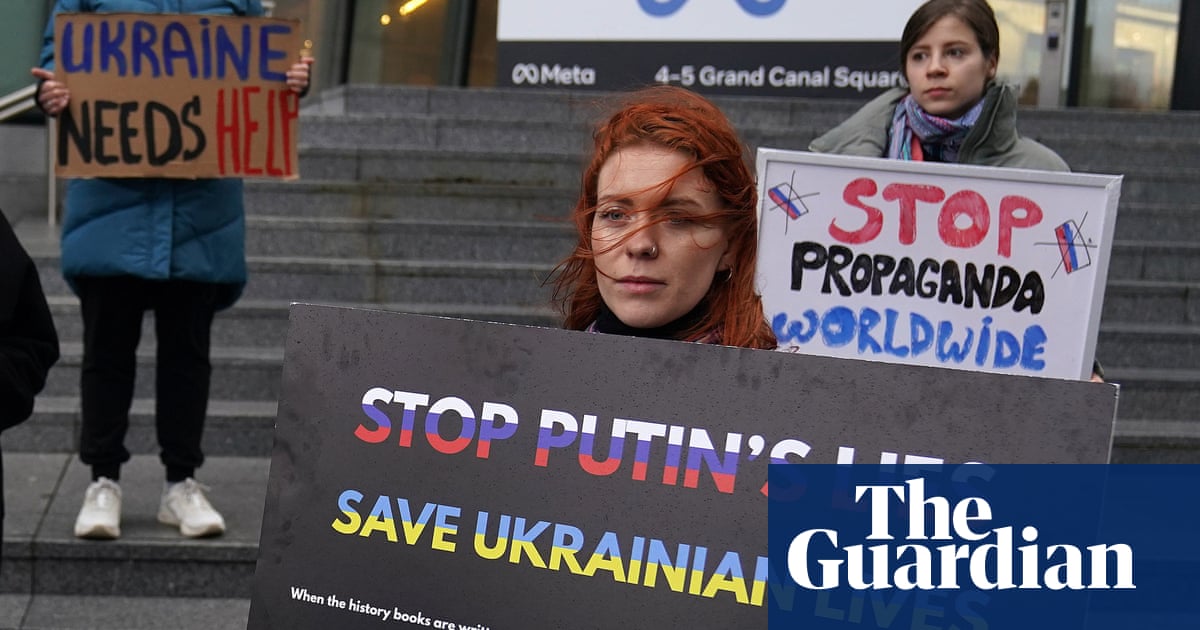US Leading Global Alliance To Counter Foreign Government Disinformation

A global coalition of democracies is being formed to protect their societies from disinformation campaigns by foreign governments, the US special envoy on the issue has said.
James Rubin, the special envoy for non-state propaganda and disinformation efforts at the US state department’s global engagement centre (GEC), said the coalition hoped to agree on “definitions for information manipulation versus plain old opinions that other governments are entitled to have even if we disagree with them”.
The US, UK and Canada have already signed up to a formal framework agreement, and Washington hopes more countries will join.
The GEC focuses solely on disinformation by foreign powers. Apart from trying to develop global strategies, it works to expose specific covert disinformation operations, such as a Russian operation in Africa to discredit US health services.
The US, UK and Canada signed the framework to counter foreign state manipulation this month with the aim of addressing disinformation as a national security threat that requires coordinated government and civil society responses. “Now is the time for a collective approach to the foreign information manipulation threat that builds a coalition of like-minded countries committed to strengthening resilience and response to information manipulation,” the framework says. It also encourages information-sharing and joint data analysis tools to identify covert foreign disinformation.
A hugely experienced US official and journalist who has worked with diplomats such as Madeleine Albright in the past, Rubin admitted his first year as special envoy had been one of his most intellectually taxing because of the complex definitions surrounding disinformation.
In the continuum between hostile opinion and disinformation, he has tried to identify where and how governments can intervene without limiting free speech.
The principle on which he has alighted is deception by foreign powers. “In principle every government should be free to convey their views, but they should have to admit who they are,” he said an interview.
“We want to promote more fact-based information, but at the same time find ways to label those information operations that are generated by the Chinese government or the Kremlin but to which they don’t admit.
“In the end that is all I know we can do right now without interfering with a free press. We are not asking for such covert disinformation to be taken down but a way to be found for the source to be labelled.”
As an example he cites a hypothetical message shown on the phone screens of people in eastern Europe, telling them “the US has bioweapons in Ukraine”.
“It is a classic disinformation trope that you might or might not believe,” he said. “But if on your screen it says in some way ‘Russia says the US has bioweapons in Ukraine, or Russia Today says it’, then the damage is less.
“There will always be people that believe crazy things, but at least they will have been told where the information came from.”
“When Russia, China or Iran or indeed a terrorist group enters a country’s sovereign information space without admitting that it is them, masking it as a bot or an intelligence operative claiming to be a journalist or by paying a local official, then you should find a way to label it.
“What is wrong is a covert operation to manipulate information by secretly inserting it into the system without a made-in-the-Kremlin stamp on it. When people read this stuff they should know it comes from the Russian government, and it is legitimate to point that out without anyone trying to censor anyone’s thoughts or opinions.”
In a country such as the US, which is constitutionally committed to freedom of speech, the issue raises difficult issues of relations with social media companies that do not arise in the same way in the more interventionist European Union. The EU has passed the Digital Services Act and in December launched an inquiry into X over illicit content and disinformation, a lack of transparency about advertising and “deceptive” design practices. The UK’s media regulator, Ofcom, has been given powers over social media content through the Online Safety Act.
Rubin stressed it was not for his organisation to tell social media companies, especially in the US, how to behave, but said it was legitimate for it to unmask disinformation operations abroad. It was for others to ask social media companies to enforce their terms of service, he said.
“I have worked on issues such as nuclear disarmament … and people thought that was hard, but this is harder,” Rubin said. “In America we have freedom of press built into our constitution. We have no regulation of social media companies, and disinformation has become a misunderstood term.
“If you go to eastern Europe and an official says they suffered this terrible disinformation episode yesterday and they show it to me, and it is just an article. The word disinformation can become like fake news, just a label for saying you don’t like something. That is not what we are talking about.
“Another reason why this is so hard is because there’s a fundamental asymmetry. Russia and China have closed their information spaces to the rest of the world.”
READ MORE HERE
